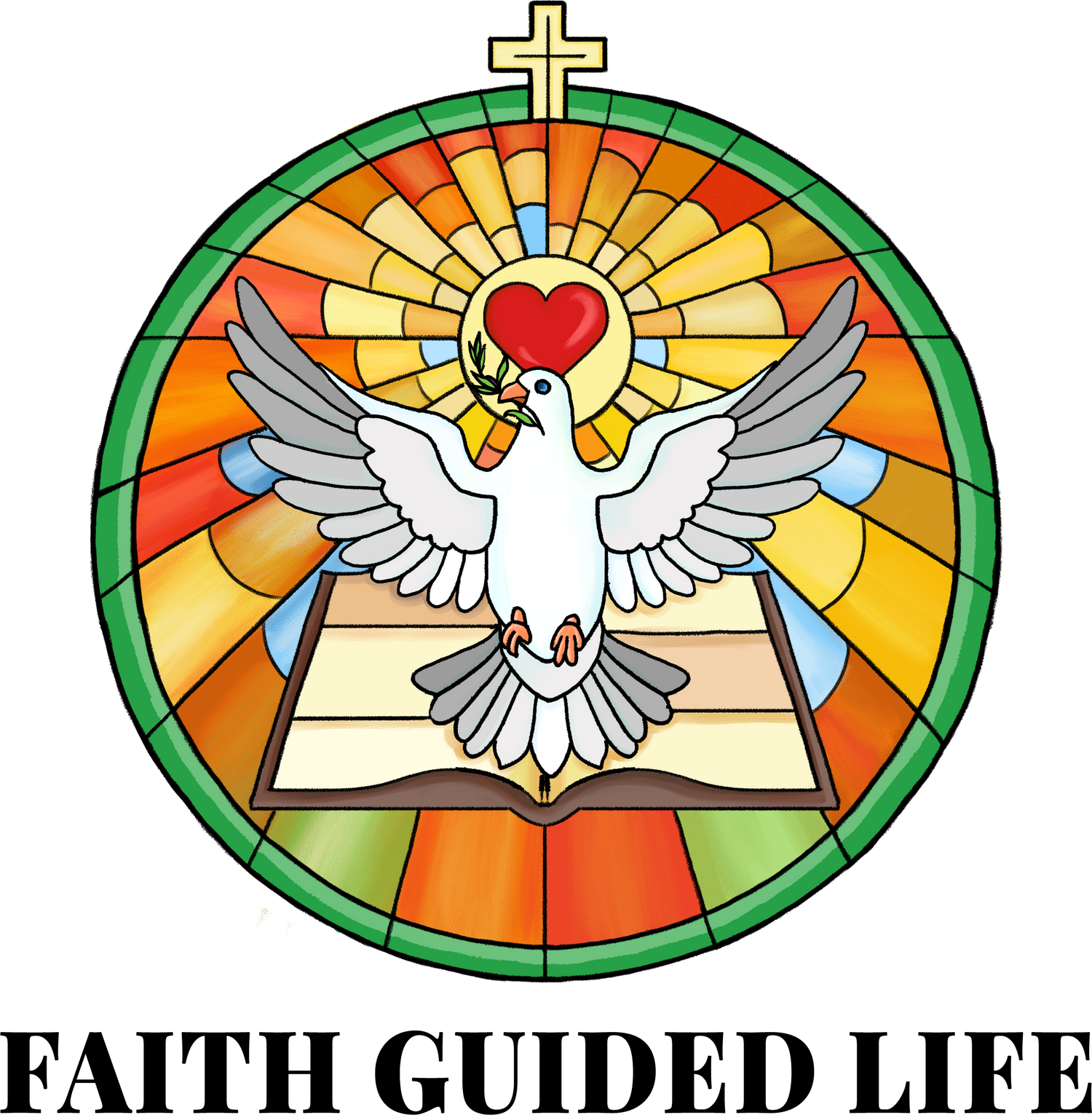
Have you ever looked up at the stars on a clear night, or witnessed the intricate dance of a blossoming flower, and felt a sense of wonder that goes beyond mere chance? Similarly, when we reflect on that inner moral compass we discussed – the Natural Moral Law that whispers to us about right and wrong – doesn't it make you pause and ask: where does this profound sense of order and morality truly come from?
Is the universe, with all its complexities and its inherent moral leanings within humanity, just a grand cosmic accident? Or is there something more, a Guiding Mind, an Intelligent Power, that underpins it all? This is a fundamental question that "The Journey of Faith" invites us to explore, and it's a question that can draw us into a deeper, more prayerful awareness of God's presence and purpose. [cf. Chapter 3: What Lies Behind the Law?, TheJourneyOfFaith2_compressed.pdf, sources 1911-1913]
Two Ways of Seeing the World: Chance or Design?
When we ponder the origin of the universe and our place within it, "The Journey of Faith" presents two broad perspectives:
- The Materialist View: This perspective suggests that everything we see – from galaxies to human consciousness – is simply the result of matter and chance, evolving over vast stretches of time. In this view, there's no inherent purpose or transcendent Mind behind existence.
- The Religious View (The Christian View): This perspective, central to Christian understanding, proposes that the universe is not a random occurrence but the creation of an Intelligent Power, a Divine Mind, imbued with intention and purpose. The Natural Moral Law we sense within us is seen as a significant clue pointing towards this Mind.
So, which view makes more sense, especially when we consider that deep, persistent sense of "ought" that defines our moral lives?
Friend, what does your heart tell you? When you experience a moment of profound beauty in nature, or when your conscience speaks clearly about a moral choice, does it feel like a random firing of neurons, or does it hint at something deeper, something intended?
The Moral Law: A Signature of the Divine Artist?
If the Natural Moral Law is real, objective, and universal, as we've discussed, it's challenging to explain it as a mere product of random evolutionary processes. Evolution might explain survival instincts, but can it fully account for selfless love, the call to justice even at personal cost, or the profound guilt we feel when we betray our own conscience?
Consider this:
- Laws Imply a Lawgiver: We understand that human laws (like traffic laws) don't just appear out of thin air; they are designed by intelligent minds for a purpose (like safety and order). Could the intricate Moral Law, which governs our inner lives, also point to an ultimate Lawgiver, a Divine Mind?
- Purpose and Meaning: The Moral Law isn't just a set of arbitrary rules; it seems to direct us towards goodness, love, and harmony. This inherent directionality suggests purpose, and purpose implies a Mind.
"The Journey of Faith" encourages us to see this Moral Law not as an inconvenient constraint, but as a loving guide, a "mark" or signature left by the Creator within His creation, including within us.
Practicing Attentive Stillness: Sensing the Guiding Hand
How can we, in our daily lives, become more aware of this Guiding Mind? It's not always about grand philosophical arguments but often about cultivating a prayerful attentiveness to the world and to our inner life.
-
Contemplate Creation with Wonder: Step outside, or even just look out your window. Observe the details: the structure of a leaf, the flight of a bird, the way sunlight falls. Instead of just seeing these as "things," try to see them as expressions of an incredible artistry and order.
- A Reflective Practice: As you observe, gently ask in your heart, "Lord, what are You showing me through this beauty, this order?" Allow a sense of awe to arise. This isn't about scientifically dissecting creation, but about prayerfully appreciating its source. This practice of finding the sacred in the ordinary echoes the call to see God in all things.
-
Listen Deeply to Your Conscience: Your conscience, that inner voice of right and wrong, can be a powerful place to encounter the echo of the Divine Mind. When it speaks, are you truly listening?
- A Practice of Inner Listening: When your conscience is pricked by a situation or a choice, instead of immediately dismissing it or rationalizing, pause. Breathe. Create a space of inner stillness. Ask: "What is this deeper sense of 'ought' trying to tell me? Where is this call to goodness truly coming from?" This practice of deep listening, of looking into the nature of our inner experiences, can help us discern a wisdom greater than our own.
-
Recognize Order in Moral Dialogue: Even when people disagree about moral issues, the very act of engaging in reasoned moral argument, appealing to principles of fairness or justice, implies a belief in some objective moral truth they are trying to reach.
- A Practice for Daily Interactions: When you discuss ethical or moral questions with others, try to listen not just to their opinions, but to the underlying moral principles they might be appealing to, even if implicitly. Notice the shared human desire for what is good and just. This can be a reminder that we are all, in some way, oriented towards a moral order established by a Mind greater than our own. This is akin to the practice of compassionate communication, seeking to understand the roots of another's perspective.
Why This Quest for the "Mind Behind" Matters
Why is it important to consider that an Intelligent Power lies behind the Moral Law and the universe?
- It Gives Life Ultimate Meaning and Purpose: If we are simply the product of chance, then our lives and our moral strivings ultimately have no transcendent meaning. But if we are created by a loving, purposeful Mind, then our lives, our choices, and our very being are imbued with profound significance.
- It Provides a Foundation for Hope: In a world that often feels chaotic and unjust, the belief in a good and wise Guiding Power offers an anchor of hope. It suggests that despite the brokenness we see, there is an ultimate order and a divine plan unfolding.
- It Invites Us into Relationship: If there is a Divine Mind, then we are not alone in the universe. We are invited into a relationship with our Creator, a journey of discovery, love, and transformation.
Your Faith Journey: From Observation to Encounter
Recognizing the signs of an Intelligent Power in the order of the universe and the voice of the Natural Moral Law within you is more than an intellectual exercise; it's an invitation to a deeper faith. It’s a call to move from simply observing the "rules" of life to seeking the Rule-Giver, from acknowledging a moral code to knowing the Heart from which it flows.
The path to understanding what lies behind the law is a central theme in the Christian walk. It challenges us to look beyond the surface, to listen more deeply, and to open ourselves to the reality of a God who is not distant or impersonal, but intimately involved in His creation and in our lives.
Are you ready to explore more deeply the nature of this Guiding Mind and what it means for your life? "The Journey of Faith: From Foundations to Transformations" offers clear, compelling insights into these profound questions, helping you build a faith that is both reasoned and deeply personal.
Continue your journey of discovery. Uncover the truths that can transform your understanding and your life. Find out more in our takebook: Link: https://faithguidedlife.com/products/the-journey-of-faith
May you find joy and wonder as you prayerfully seek the Mind and Heart behind all of creation.




